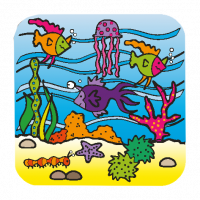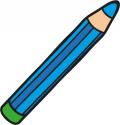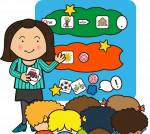Top 10 Tips for Teaching Children to Write
Writing is an essential skill that children need to develop, as it helps them communicate effectively and express their thoughts and ideas. Teaching children to write can be a challenging task, but with the right approach and a little bit of creativity, it can also be a fun and rewarding experience. Here are our top 10 tips for teaching children to write.
1. Start with the basics
Begin by teaching children the basics of writing, such as how to hold a pencil correctly and form letters.
Make sure they understand the importance of proper letter formation and encourage them to practice regularly.
2. Make it fun!
 Make writing enjoyable by incorporating games, storytelling, and fun activities into the learning process.
Make writing enjoyable by incorporating games, storytelling, and fun activities into the learning process.
For example, you can ask children to write a story based on a picture or play word association games to expand their vocabulary.
This is where Mighty Writer shines – use the picture tiles as prompts for children to write stories from. If you’d like some ideas, head to our blog “Lesson Plan: Using Picture Prompts for Writing in Key Stage One.”
3. Use a variety of writing tools
 Give your pupils the opportunity to experiment with different writing tools, such as pencils, pens, markers, and even digital devices.
Give your pupils the opportunity to experiment with different writing tools, such as pencils, pens, markers, and even digital devices.
This will make the writing process more engaging and help them develop their fine motor skills.
4. Provide writing prompts
Give children interesting writing prompts to spark their imagination and encourage them to write creatively.
You can ask them to write about their dream holiday, their favourite animal, or a fictional character.
Head to our blog “Using Creative Writing Prompts to Combat Writer’s Block for Key Stage One Children.” to learn more about using writing prompts!
5. Encourage storytelling
Storytelling is a great way to develop children's writing skills.
Encourage them to create their own stories by asking them to think about characters, settings, and plots. This will help them organise their thoughts and develop their narrative skills.
(If you need ideas, head to our “Lesson Plan: Teaching Creative Writing for Key Stage One” blog!)
6. Practice regularly
Consistency is key when it comes to teaching children to write.
Set aside regular writing sessions and make it a part of their daily routine. This will help them build confidence and improve their writing skills over time.
7. Offer constructive feedback
 Provide constructive feedback to children on their writing.
Provide constructive feedback to children on their writing.
Focus on positive aspects and areas for improvement and encourage them to revise and edit their work.
This will teach them the importance of editing and help them grow as writers.
8. Create a writing space
Dedicate a specific area in your home or classroom as a writing space.
Make it comfortable and inviting, with plenty of writing materials and resources. Having a designated space will help children associate writing with a positive and focused environment.
9. Celebrate progress
Recognise and celebrate children's progress in writing.
Display their work, praise their efforts, and encourage them to share their writing with others. This will boost their confidence and motivate them to continue improving.
10. Foster a love for reading
Reading and writing go hand in hand.
Encourage children to read books, stories, and poems regularly.
Exposing them to different writing styles and genres will inspire their own writing and help them develop their own unique voice.
Conclusion
Teaching children to write is a journey that requires patience, creativity, and a supportive environment. By following these top 10 tips, you can help children develop their writing skills, foster their creativity, and instil in them a lifelong love for writing.
How Can Mighty Writer Help?
Mighty Writer is a valuable tool that allows you to engage children in a lively and interactive manner while teaching the children essential writing skills.
Ready to learn more about Mighty Writer? Click below to download our guide!

